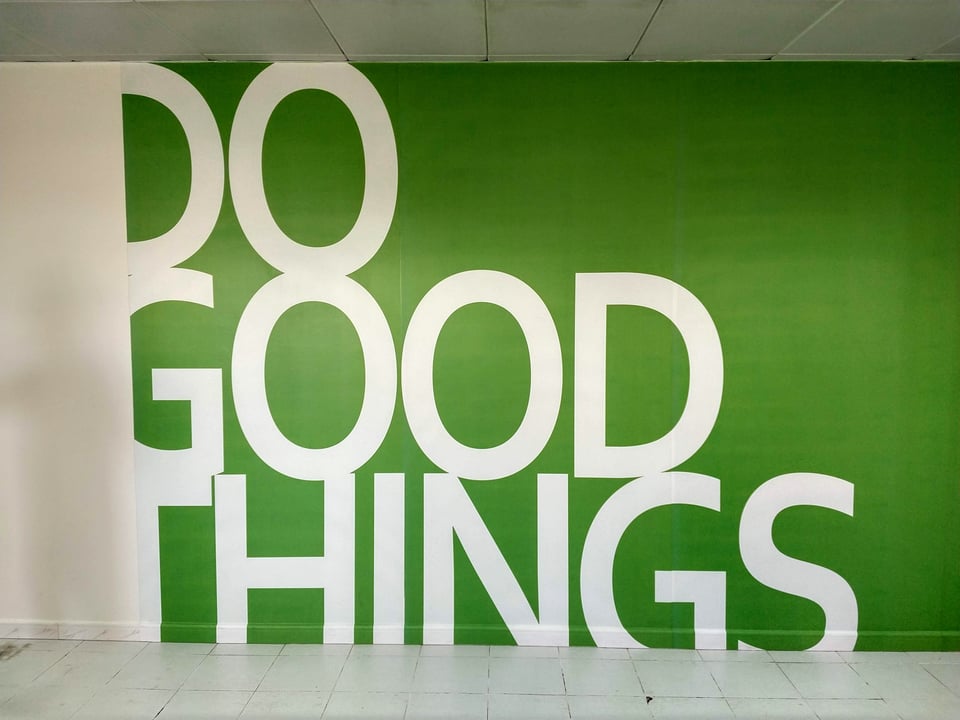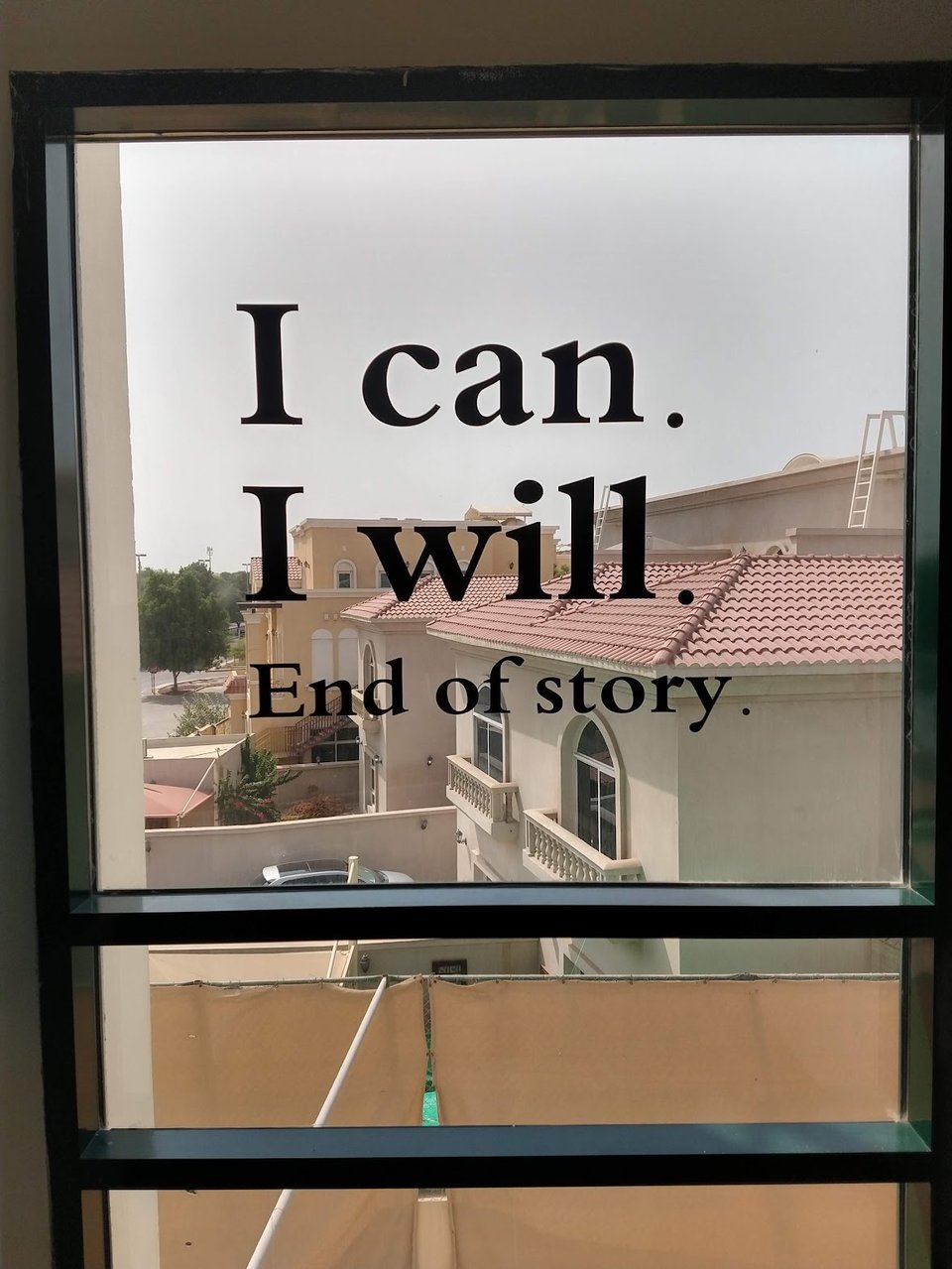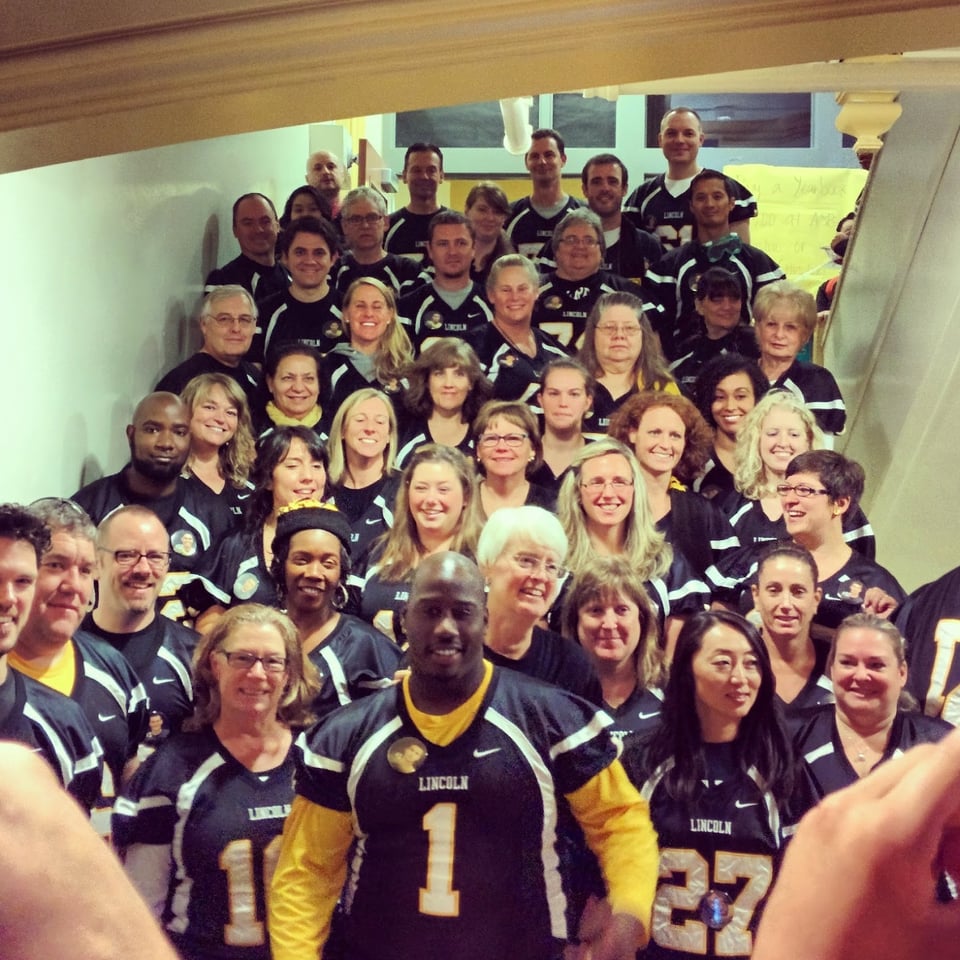Teaching is Easier and Harder than Ever

Let’s talk a bit about back to school.
I remember telling someone during my first week of grad school, “I’m going to try this teaching thing for a minute, but then I want to go to law school.” That was 2004. At that time, I was set on Constitutional Law. I think I would have made a decent lawyer, but I chose this path instead—or perhaps it chose me, or some combination of the two.
After a week of meetings back on campus, Tuesday morning marks the start of my nineteenth year in the classroom and my sixth year teaching internationally. Sometimes, it feels like I’ve lived multiple lifetimes in the classroom.
I am either one of the youngest members of Gen X or a proto-Millennial, depending on who’s counting. My classroom career reflects that. I’ve been around long enough that my first classroom had an overhead projector, and I left most days with my fingers stained and smudged from Vis-a-Vis markers (if you know, you know). On the other hand, I’m as savvy with instructional tech as anyone, though maybe not as much as Casie Freaking Dolan. On Thursday afternoon, I programmed a chatbot where my students could question James Madison about the Federalist Papers, the intricacies of the Constitution’s compromises, and his views on the morality of chattel slavery in the US.

A long teaching career brings wisdom and experience, but it’s also easy to become stagnant or complacent. The sweet spot is being an old dog with new tricks, and that’s where I feel I land.
In this week’s newsletter, I want to discuss my mindset going into this year and what lies ahead. My audience skews heavily toward educators but also includes many parents (God bless each one of you) and a few former students, some of whom are now parents themselves (so God bless them twice).
In some ways, teaching is easier than it’s ever been. In other ways, it’s far more challenging.
Let’s start with the easier part:
It’s Easier to Curate than Create: thanks to the internet and various technological tools, we now have an abundance of resources that simplify delivering information to students. I once worked with a student teacher who described teaching as curating. Essentially, for every lesson and unit, someone else has already taught or built something similar. Early in my career, I spent far too long searching for the perfect resource. Now, I focus less on finding the ideal material and more on how I will deliver it.
As a teacher, time and energy are finite. Wasting energy on duplicating others’ work isn’t productive. It’s one thing to say this, but another to truly understand how many resources are available. For example, last year, my co-teacher, the aforementioned Casie Freaking Dolan, and I built a World History course. But rather than build, we adapted.
We started with resources from the Open Education Resources (OER) project and scavenged what we found useful. We then added some pre-AP stuff from the College Board to enhance the geographical reasoning in the course. We ended up adding resources from our own respective toolkits as well, filling gaps and perspectives we felt were lacking. We taught the class last year. Students and families gave it rave reviews and this year we’re making mild refinements.
This is how planning should work in 2024.
On the other hand, Many Students are Fighting for their Lives: conversely, the demands on teachers are more intense than ever. Throughout my career, I’ve been fortunate to work in three distinct contexts. I spent three years teaching Reading and World History at a relatively affluent middle school in the Northeast corner of Tacoma. I then moved to Lincoln High School, a classic, highly racially segregated, predominantly lower-income urban American school. My time at Lincoln was the most fulfilling of my career but it was also the most exhausting. I left school drained, rubbed raw emotionally, nearly every day, as did every other teacher there.
Because white and affluent families are more likely to enroll their children in private and boutique schools, US public schools typically have fewer resources than their surrounding areas. They also tend to be more racially segregated, and the children who attend them struggle economically at a higher rate than those in the surrounding communities.

Working in a school like Lincoln requires immense dedication and there are “Lincolns” all over the country and as the economic fortunes of the bottom 50% of income earners in the United States decline, household troubles ripple into the classroom.
Economic misery and poor health are impediments to learning. This isn't me chiding the families for their circumstances. Instead, I'm trying to lay out the slow motion train wreck that many families in our respective communities are facing.
Conversely, the cumulative advantage of economic stability over an academic career is life-changing. Put differently, my students here in the Gulf have better standardized assessment scores not because they are “smarter” or “better,” but because throughout their lives they have been able to prioritize school over survival.
Hungry brains don’t learn.
Tired brains don’t learn.
Scared brains don’t learn.
Brains in survival mode don’t learn.
It’s far easier to engage with a detailed reading about “the evolution of post-colonial states and how civilian control of the military is an indicator of democratization” (yes, that’s a reading for week two of the semester) when your basic life needs are met and your focus is on learning.
Teachers can make some impact, but this is a larger societal issue. Asking teachers to confront it alone clearly isn’t working for anyone.
So, if you’re reading this and you’re a teacher, I salute you. If you’re reading this and you’re a parent, I also salute you. If you’re reading this and you’re neither a teacher nor a parent, I challenge you to consider what you can do to advocate for the schools in your community and the students within them.
Because they need your help.